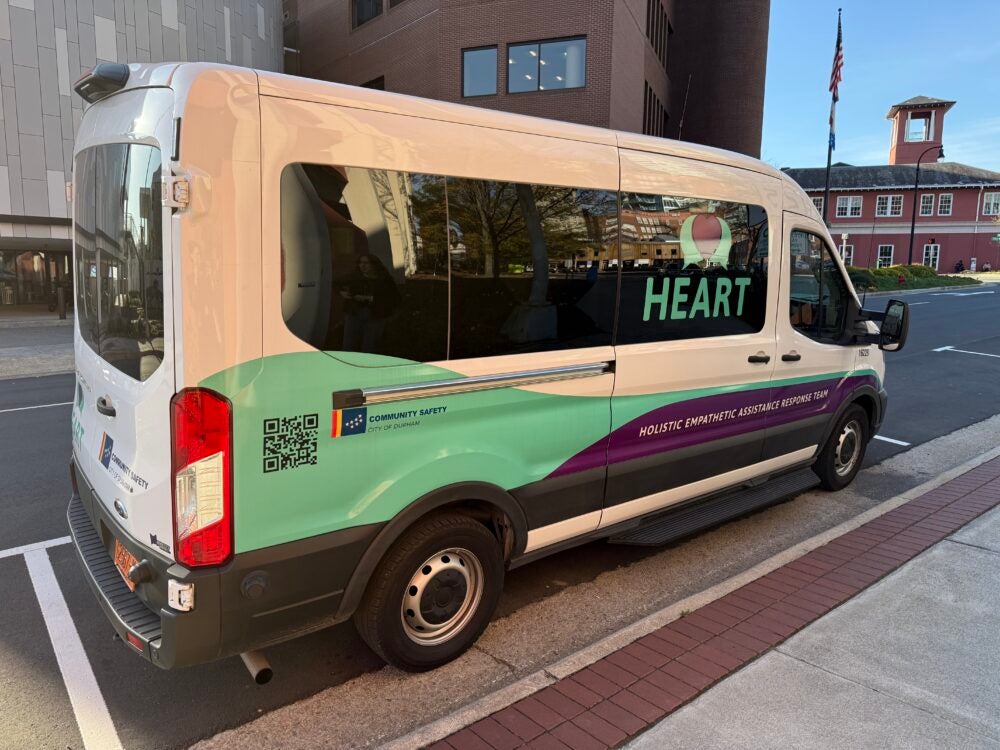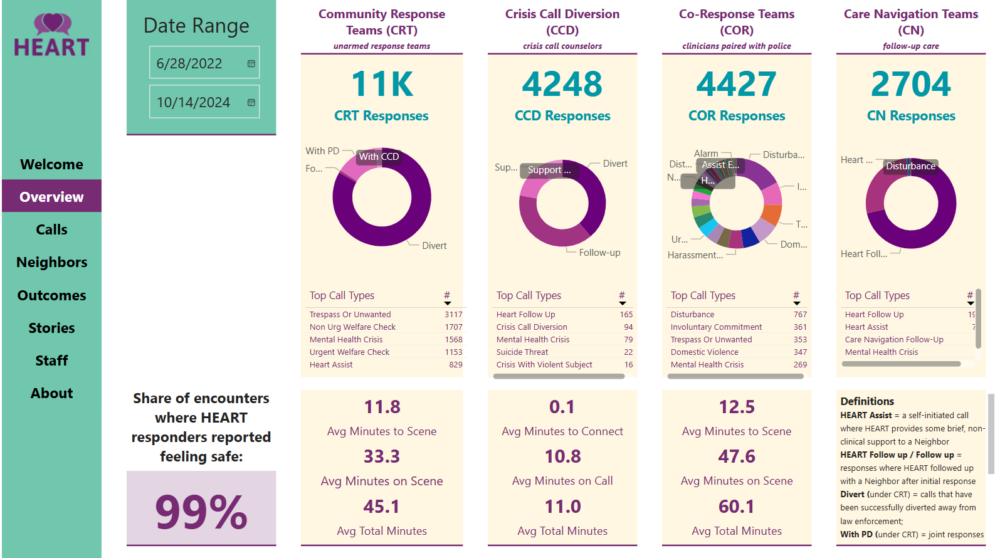Strengthening Alternative 911 Emergency Response
Advancing Alternative Emergency Response in Durham

- The City of Durham decided to establish an alternative emergency response team to find new, equitable, and innovative approaches to keep residents safe that reduced reliance on police response.
- In June 2021, the City of Durham established the Community Safety Department (DSCD) to better respond to the safety and wellness needs of residents. The department’s primary functions include:
- Developing and expanding new response models for 911 calls for service
- Collaborating with community members to identify additional approaches to public safety
- Managing and evaluating existing contracts and external partnerships intended to advance public safety
- DSCD joined the GPL’s inaugural Alternative 911 Emergency Response Implementation Cohort in 2021. With technical assistance from the GPL, DCSD launched three crisis response units housed under the Holistic Empathic Assistance Response Team (HEART) in June 2022, including:
- Crisis Call Diversion (CCD): Mental health clinicians embedded in Durham’s 911 call center who work to resolve calls over the phone.
- Community Response Teams (CRT): Unarmed, three-person teams dispatched as first responders to non-violent 911 calls related to mental health crises and quality of life concerns.
- Care Navigation (CN): Clinicians and peer support specialists who follow-up within 48 hours of an initial 911 interaction to help people connect to supportive, community-based services.
- In September 2022, HEART added a Co-Response Team (CoR), which consists of one police officer and one clinician, to respond to certain calls with a higher risk for violence.
- Since October 2023, the HEART program has operated city-wide, seven days a week, with at least one unit operating for 18 hours a day.
How the GPL is Supporting:
- Provided intensive technical assistance to support HEART’s initial launch in 2021 and 2022, including through co-design and advising on:
- Data collection processes and dashboard creation
- Job descriptions and interview questions for hiring prospective staff
- Stakeholder presentation materials
- Policies for processing calls eligible for CCD
- Success metrics to evaluate HEART’s initial pilot
- Delivered ongoing ad-hoc support to DSCD, including a training series for supervising staff to enhance data-driven performance management practices and improve program performance in November 2024.
- Developing actionable implementation resources to facilitate uptake of DCSD’s promising practices among other jurisdictions in North Carolina and across the country. This includes:
- Shadowing and interviewing HEART program stakeholders.
- Reviewing internal program documentation and data.
- Creating and disseminating tools based on DCSD’s insights.
Results:
- DCSD’s Holistic Empathic Assistance Response Team dashboard reports the following, as of March 2025:
- Call Volume: HEART’s CRT teams have successfully diverted more than 12,000 911 calls away from law enforcement, and HEART’s CoR teams have responded to more than 4,500 911 calls.
- Response Time: On average, HEART’s CRT and CoR teams respond to calls in approximately 13 minutes or less.
- Calls for Backup: HEART responders call for backup from police and EMS on only 0.02% and 0.36% of calls for service, respectively.

The GPL supported DCSD in refining HEART’s dashboard (pictured above), which is updated monthly. Image courtesy of DCSD. To access the tool, visit: https://www.durhamnc.gov/HEART-data
We want Durham residents who call 911 to receive the most effective and appropriate response to serve their needs. Sometimes that is a police officer, and sometimes it’s a mental health worker or some other trained, unarmed crisis responder. We are so excited to be doing this work with such a strong cohort of cities and the guidance of the Harvard Kennedy School Government Performance Lab.Steve Schewel
Former Mayor, Durham, North Carolina
The GPL Implementation Cohort is one of the best technical assistance experiences I’ve participated in. Sometimes, technical assistance requires a lot of producing extra deliverables for the organization, which becomes added work, and there is none of that here. This is striking that sweet spot of helping us with wherever we are at.Ryan Smith
Director of Durham's Community Safety Department